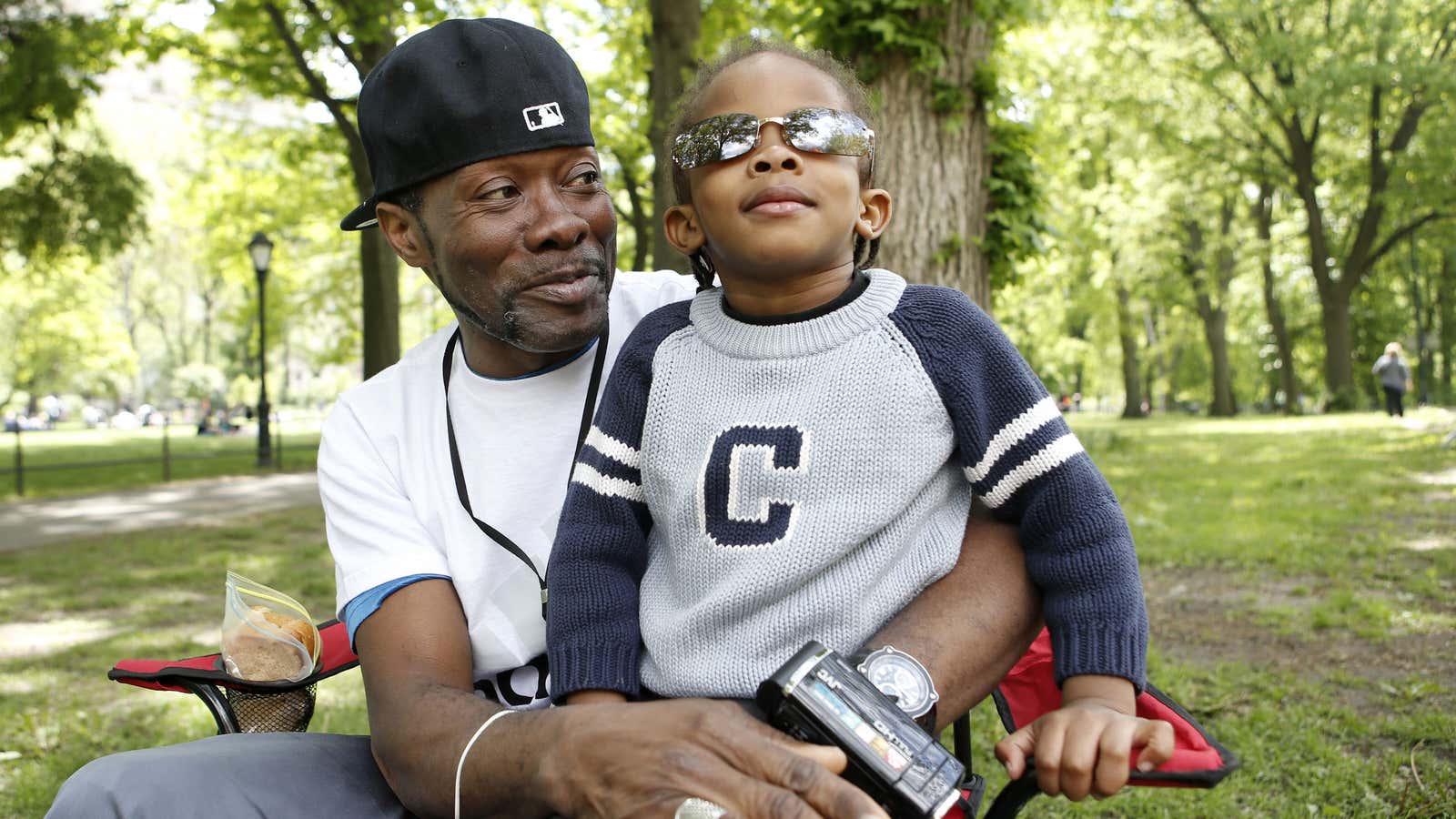Single parents—defined as divorced, separated, widowed, or unmarried, non-cohabitating parents—are overwhelmingly women: In the US, 70% of single parent households are headed by a woman. Single fathers are however becoming more common, and while parenting alone is hard for anyone, it looks like being a single father may take the greatest toll.
A study led by Maria Chiu of the Mental Health and Addictions Program at the Institute for Clinical Evaluative Sciences, Toronto, and published last week in the medical journal The Lancet, found that single fathers faced a higher risk of premature death, compared to single mothers, and to fathers and mothers who coparent.
The study, one of few to focus on the oft-neglected demographic of single dads, surveyed over 40,000 parents in Ontario from a poll of nearly 201,000 respondents to the Canadian Community Health Survey (CCHS), representing a cross section of Canada’s population. This group included 871 single fathers (who lead only about 3.5% households in Canada), 4,590 single mothers, 16,341 partnered fathers, and 18,688 partnered mothers, all aged 15 or older. All had natural or biological children under the age of 25.
Participants’ habits and health were analyzed. Their likelihood of death was evaluated by a follow-up study roughly a decade later, which found that the mortality rate was three times higher for single fathers than for other parents: In fact, even after adjusting for age and other conditions, the risk of death for single fathers was two times higher than for partnered fathers. It was 2.49 times higher than for single mothers.
Oddly enough, single fathers had better social baselines: Overall, the study found that they tended to earn higher salaries and own homes, and were less likely to be unemployed. On the other hand, they appeared to be less healthy: Single dads were more likely to have poor diets and to binge drink. Though they had higher likelihoods of exercising compared to other parents, they had higher rates of obesity, hypertension, respiratory conditions, and cancer.
These findings are consistent with a separate Swedish study—focused exclusively on men and polling a larger population of over 600,000—which found in 2004 that single fathers and childless men have higher mortality rates than their peers—although not quite as dramatically as in Canada. Swedish single fathers’ mortality rate was 1.3 times that of partnered fathers. The studies are alike in that they draw on data from wealthy countries, and would not be generalizable to other socioeconomic environments.
The Canada study points out that further research is required to identify the actual causes of such disparity and answer questions turned up by the results: Why did single fathers have higher prevalence of cancer than partnered fathers, yet were less likely to die of cancer? Why isn’t the discrepancy between single mothers and partnered mothers as high?
The researchers do point out one potential factor in single fathers’ struggle: Loneliness. In the study, single father were slightly less likely to say they felt isolated. Nevertheless, ”single fathers are significantly less likely to have relationships and connections within and between social networks,” point out the authors. ”Furthermore, given that there are more single mothers than fathers, support (eg, financial assistance, educational grants, and support groups) is more commonly available for single mothers,” they add. “Structural barriers, either real or perceived, might prevent men from accessing these community services.” Loneliness has been associated with poor health, and has been found to generate risks of premature death comparable to those of obesity or smoking.
